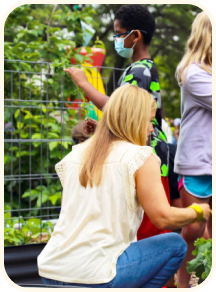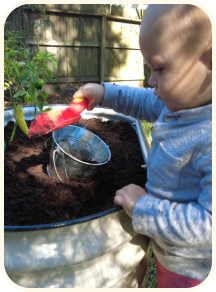How To Safely Get Rid Of Wasps In Your Garden
As the warm weather of early spring and late summer rolls around, so do the unwelcome guests in your garden: wasps. These buzzing insects, including yellow jackets, paper wasps, and bald-faced hornets, can be quite a nuisance and even pose a risk with their painful stings. However, you can safely and effectively deal with a wasp problem in your garden using natural methods and preventative measures.
Another thing worth mentioning is that many wasp species are carnivorous and feed on other insects, spiders, and even carrion. Social wasps, such as yellow jackets and hornets, are known for capturing insects to feed their larvae. They do visit flowers for nectar, and in doing so, they may transfer some pollen from one flower to another. However, their focus on predation and scavenging typically outweighs their contributions to pollination.

In this guide, we'll explore how to get rid of wasps and protect your outdoor areas without resorting to harsh chemicals or risking a nasty sting.
1. Identify the Type of Wasp
Different species of wasps may require different approaches. Yellow jackets, paper wasps, mud daubers, and bald-faced hornets are some of the common species you might encounter. Understanding the type of wasp you're dealing with is crucial for effective removal.
2. Locate Wasp Nests
In the early morning or late evening when wasps are less active, carefully observe your garden to spot signs of wasp activity. Look for papery nests, often hanging from tree branches, porch roofs, or in the ground. Identifying the location of the nest is key to safely addressing the issue.

3. Keep Your Distance
Always maintain a safe distance from an active nest. Wasp stings can be painful, and for those with allergies, they can lead to serious allergic reactions. Wear protective clothing like long sleeves and pants when near a nest.
4. Use Natural Wasp Traps
Wasp traps can be a good way to control wasp populations in your garden. You can create a simple DIY trap using a plastic bottle, sweet bait like fruit juice or a mixture of sugar and water, and a small amount of dish soap. The wasps will be attracted to the bait and will get trapped inside.

Fake Wasp Nests
Some wasp species are territorial and avoid building nests near others. Hang fake wasp nests in your garden to deter them from making new nests in the area. You can easily find these decoys at hardware stores.
Essential Oils
Certain essential oils, such as peppermint oil, can be used to deter wasps. Mix a few drops of peppermint oil with water in a spray bottle and apply it to areas where wasps are active. They dislike the strong scent.
Soapy Water
A simple mixture of soapy water in a spray bottle can be used to instantly neutralize individual wasps. Spray them directly when they're within reach.
Professional Pest Control
For large nests or aggressive wasp species, it's best to seek professional help from a pest control company. They have the expertise and equipment to safely remove wasp colonies.
5. Preventative Measures
Tidy your Backyard
To prevent wasp infestations in your backyard, it's crucial to take several preventative measures. Firstly, maintaining a tidy backyard is essential. Ensure you seal garbage cans securely and promptly clean up fallen fruit beneath fruit trees, as ripe fruit can attract wasps. Remove potential food sources like pet food or sugary drinks that might entice them. Keeping outdoor areas clean and free of leftover food scraps is also vital in discouraging wasps from foraging.
Trellises in your garden can create an ideal environment for wasps to take refuge, thanks to the shelter they offer and the abundance of food. Installing a cover system on your trellis can be a clever and eco-friendly solution to deter wasps from invading your garden.
The Vego Garden cover system, a specialized mesh designed to enclose raised garden beds acts as a barrier against wasps and other unwanted pests. By effectively preventing wasps from accessing your fruits and vegetables or making nests in your trellises, this innovative solution not only safeguards your garden produce but also ensures a harmonious gardening experience for you. With the Vego Garden cover system in place, you can enjoy your garden's bounty without the nuisance of wasps.

Citronella Candles
Using citronella candles in your outdoor areas can help deter not only wasps but also other flying insects.
Dispose of Old Nests
If you've had a wasp problem in the past, be sure to remove any old nests. Wasps may reuse them if they find them in good condition.
Natural Insecticidal Dusts
In cases where wasps have nested in hard-to-reach places, insecticide dusts can be used as an effective solution. These dusts are often available in hardware stores.
6. Professional Help
If all else fails, and you find that the hornets' nest is too large, positioned too high, or if you have allergies, it's best to call a professional for safe removal. Even if you prefer to avoid using chemicals, many companies specialize in the humane removal of hornets. These experts can effectively and safely address the issue, ensuring the hornets are removed without harm.
7. Final Thought
Remember, while some wasps play an important role in controlling other garden pests, an aggressive wasp infestation can be both a nuisance and a safety hazard!
Taking steps to safely remove wasps from your garden and deter them from nesting in the first place is the best option. By using these natural methods and being cautious, you can enjoy your outdoor spaces without the worry of wasp stings.





























Leave a comment